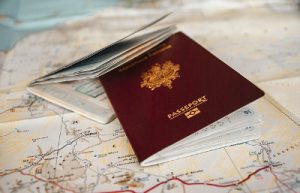
From pension transfers into beneficial QROPS to careful tax planning, expats have a lot to consider so that they can be financially confident and live their life abroad to the fullest.
But with Brexit looming, there are other considerations afoot. For example, should expats keep their British citizenship or apply for nationality in their new expat homeland? And according to new statistics, it appears that the Brexit referendum result has had a significant effect on the number of Britons gaining citizenship elsewhere in the EU.
Figures from Eurostat, the EU\’s statistics agency, show a substantial surge in the number of Britons acquiring citizenship in other EU countries between 2015 (2,478) and 2016, when the number more than doubled to 6,555 – that\’s an increase of 165 percent. The figures include both those who chose to adopt dual citizenship, so that they kept their British citizenship, as well as those who renounced it.
As for where Britons chose to become citizens, a large proportion opted for Germany – an impressive 2,702 acquired a German passport (this was more than four times the 594 who did so the previous year), making up 41 percent of the overall number. However, many also decided to become Swedish, Dutch, and French citizens.
Although Eurostat is yet to release its figures for 2017, other research has suggested that the high number of citizenship acquisitions continued throughout last year, and all the evidence points to an even more significant increase.
For instance, the BBC reported on figures it obtained last year that examined citizenship applications in the 12 months before the referendum and the 12 months after. It found that all countries surveyed experienced more than twice as many applications from July 2016 to June 2017, than they did from July 2015 to June 2016.
At the start of 2018, the French Ministry of Interior also gave a more accurate picture of the situation in France, which included data for 2017. In 2015, 386 Britons filed applications to become French citizens. The number rose to 1,363 in 2016 and then to 3,173 in 2017. However, these figures cover all applications – the number of Britons successfully receiving French citizenship in 2017 was 1,518.
The different sets of figures have made it clear that Brexit has pushed many Britons to make a decision on their nationality and will likely continue to have an influence until the date the UK finally leaves the EU (March 2019). There is still a cloud of uncertainty looming over Brexit negotiations and how the outcome will affect UK expats, and it would appear that many view EU citizenship as the only certain way of retaining all their current rights, such as the right to live and travel in all EU member states.
Commenting on the Eurostat statistics, Jonathan Portes, Professor of Economics at King\’s College London said that Brexit is likely to make UK citizenship much less useful for working, living and travelling elsewhere in the EU and added that he would be surprised if the upward trend didn\’t continue.
Expats deciding to adopt the nationality of their chosen country has become a key issue recently, but there is much more for them to consider as part of their expat retirement planning, such as making sure their finances are robust enough to support them throughout retirement.
Blacktower\’s financial advisers can provide expats with guidance concerning pension transfers into SIPPs and QROPS as well as wealth management and regular savings advice.
By speaking to one of our financial advisers, we can help you make your financial goals more attainable so that, whether you opt for EU citizenship or not, your money will be looked after.
